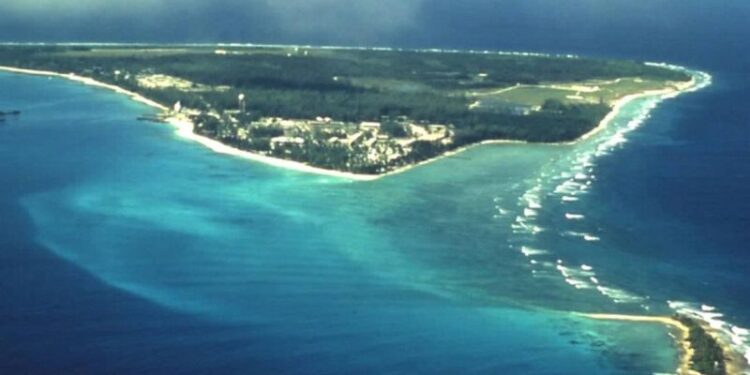On 22 May 2025, Britain formally ceded sovereignty of the Chagos Islands to Mauritius, ending over two centuries of British control and marking a significant step in addressing its colonial legacy. The agreement, signed by Prime Minister Keir Starmer, ensures the continued operation of the strategic UK-US military base on Diego Garcia, the archipelago’s largest island, through a 99-year lease with an option for a 40-year extension. This move resolves a long-standing dispute with Mauritius, which has claimed the islands since its independence in 1968, but it has sparked debate over costs, security, and the rights of displaced Chagossians.
The Chagos Archipelago, a cluster of islands in the Indian Ocean, was separated from Mauritius in 1965, three years before the latter’s independence, to form the British Indian Ocean Territory. Between the late 1960s and early 1970s, Britain forcibly removed up to 2,000 Chagossians, relocating them primarily to Mauritius and the Seychelles, to make way for the Diego Garcia base. The base has since been vital for Western military operations, including bombing missions in the Middle East. International pressure, including a 2019 non-binding ruling from the International Court of Justice and a 2021 UN maritime court decision, deemed Britain’s control unlawful and urged decolonisation, pushing the UK towards this agreement.
The deal, costing the UK an estimated £3.4 billion—potentially rising to £30 billion with inflation—includes annual payments of £101 million for the lease, £45 million yearly for 25 years to support Mauritian development, and a £40 million trust fund for displaced Chagossians. Mauritius will manage fishing rights and marine conservation, with priority given to Mauritian companies for base-related contracts. Prime Minister Navin Ramgoolam of Mauritius hailed the agreement as a “great victory” for completing decolonisation, while Starmer defended it as essential for securing the Diego Garcia base and preventing potential Chinese influence in the region.
However, the agreement has faced criticism. Some Chagossians, including British citizens Bertrice Pompe and Bernadette Dugasse, argue they were not adequately consulted and fear diminished rights to return to their homeland under Mauritian control. A last-minute High Court injunction by these women briefly delayed the signing, though it was overturned. Critics, including Reform UK’s Nigel Farage and Conservative figures, claim the deal is costly and risks benefiting China, citing Mauritius’s growing ties with Russia and China. Starmer countered that allies like the US, NATO, and India support the agreement, while opponents align with Russia, China, and Iran.
The deal’s supporters argue it aligns with international law and secures a critical military asset. US Secretary of State Marco Rubio welcomed it as a “historic agreement,” despite earlier Republican concerns about Mauritius’s China links. For the Chagossians, the trust fund and potential resettlement (excluding Diego Garcia) offer hope, though divisions remain, with some supporting Mauritian sovereignty and others feeling betrayed. As Mauritius assumes control, questions linger about the balance between geopolitical strategy, financial cost, and justice for the Chagossian diaspora.
newshub finance




Recent Comments